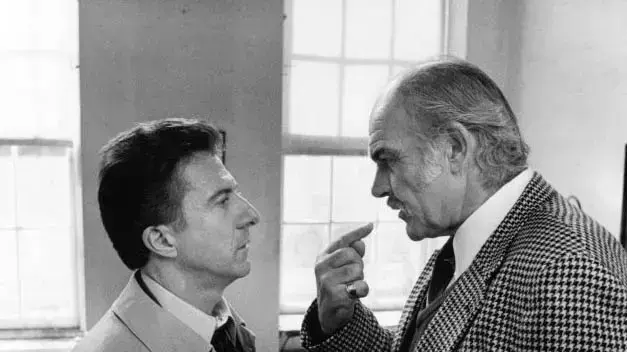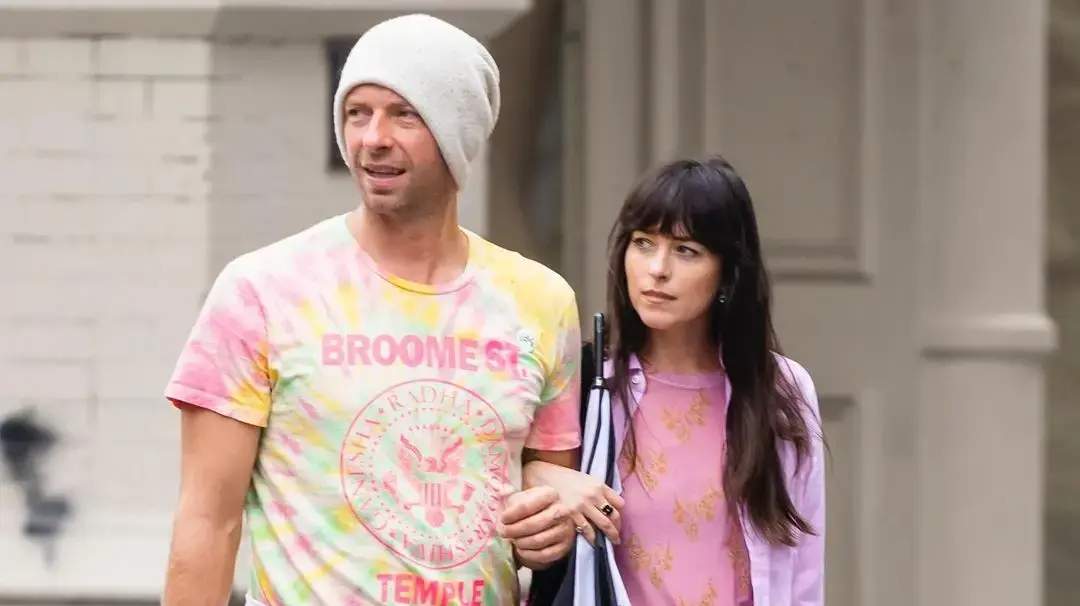For a sin we have sinned: Managers recall the mistakes they made in business
Special for Yom Kippur: senior managers agreed to share with us the mistakes and sins they committed in the business world and the lessons they learned following the recognition of the mistake
Ilana Stutland
02/10/2022
Sunday, 02 October 2022, 12:09 Updated: Monday, 03 October 2022, 21:53
Share on Facebook
Share on WhatsApp
Share on Twitter
Share by email
Share in general
Comments
Comments
Even before forgiving: you need to recognize the mistake and no less importantly - take responsibility for it (Photo: ShutterStock)
It is not easy to admit mistakes.
In preparation for Yom Kippur, CEOs and VPs honestly tell about the decisions they made during their careers that they later regretted, and no less important: what they learned from it
Lisa Zaychik, Vice President of Human Capital and Operations at AppsFlyer (Photo: appsFlyer)
between offices
Lisa Zaychik, Vice President of Human Capital and Operations at AppsFlyer
, which develops cloud technologies for data analysis for app owners:
"I remember my business regret every day.
This happens when I walk by the office next door, which I chose not to rent when we had the opportunity to expand to three more floors in our flagship office.
"At that time, I had a dilemma - should I make a huge financial investment in the hope that in the long term the company will grow significantly or alternatively, wait and see if we do grow significantly - and only then rent additional space. We chose to play it safe and did not rent the three additional floors. In retrospect, this There was a miss. Meanwhile, another well-known technology company leased the office space.
Our team, which includes hundreds of female and male employees in Israel, is now spread over several offices, all within a 3 km radius. The chance to increase our team in one central location would have helped us in several ways: the biggest advantage, which is now clear after we have grown, is the impact on The corporate culture, if we were all together in one office. It did take time, but I learned to live with the regret and even embrace it. I let the daily reminder guide and lead me to better actions and how to improve. It gives me motivation. I wish all of us the courage to make good choices, and The determination to reach our full potential this year. Finished a good signing!".
good to know (in advance)
B-Cure Laser - does it really help?
The truth is revealed
Served on behalf of B Cure Laser
Raphael Sviri, president of WalkMe (Photo: Walkme)
at the top of the career
Raphael Sviri, president of the company WalkMe
, which develops a platform for training and navigating users on different systems in the organization where they work:
"Looking back, my regret is that at the beginning we did not invest enough in building the career path of the middle managers within the company. Each employee was recruited with the idea that he has the The skills required for the position he was appointed to, but in practice these are multi-skilled talents who hold a diverse and greater potential than that. We had highly motivated employees, and at the beginning we did not manage to perfect their knowledge, so that they could contribute to society in more and more ways.
One of the main factors for the growth of a company is the implementation of a wide and diverse set of tools among employees who are motivated and have a desire for development and growth.
That is, a training program that gives them the feeling that they are moving forward towards their personal development, hand in hand with the company.
This is a joint journey, when we as a company provide the employee with the tools to maximize his skills while the employee and the company grow together.
After all, the smarter our employees are, the more everyone benefits.
We prefer to invest first in the talents within, who have walked a path with us, than to recruit.
"Within a short time we understood what the employees see before their eyes and what promotes us and them together. Today you can already see dozens of promotions and success stories that grew with us and with us - from a junior employee to a senior manager - thanks to the fact that we took the reins in our hands at the right time. We had employees recruited for sales positions or technical support, demonstrated their skills and demonstrated motivation until they were promoted to senior positions in their teams or underwent our internal training, migrated to other departments and advanced in them.
Our entire organizational language revolves around growth, and options for the employee. WalkMe offers employees online training in a variety of areas to sharpen their skills , whether it is in their main field of occupation or whether it is the expansion of knowledge to additional worlds of content.
All employees of our marketing team, for example, received credit for free use of a learning and enrichment system. This is a financial investment on the part of the company and we are sure that we will reap the fruits of the investment in employees."
Ziv Elol, entrepreneur, investor and CEO of Periapt (Photo: Tal Shahar)
The haste from the devil
Ziv Elol, entrepreneur, investor and CEO of Periapt
, which develops an artificial intelligence system that will enable parents of children with ADHD to better deal with the challenges that lie ahead:
"At the end of 2018, I assumed the position of CEO at the German company Fyber, after the company 'Ineractive', which I founded together with Ofer partners Yehudai, was purchased by her. This was actually my first time as CEO of a public company.
One of the first moves I wanted to lead was to move Fyber's local sales activity, which at the time was mainly concentrated in Berlin, to the local markets.
As management, we put a lot of thought into the transition to the local market.
One of the biggest markets for us was the Asia region (APAC) and I made a decision to transfer there the activity that was managed remotely from Berlin.
The transfer of the activity was done quickly and recklessly.
As a result, the motivation of the local workers in Berlin was significantly damaged and they simply left in no time.
In addition to them, customers also left and we as a company paid too high a price.
"In retrospect, I should have been much more careful. Studying the Asian market, connecting with it and getting to know the key people in it - this is a process that can take a lot of time. The decision to move the sales center to a larger market was indeed correct, but the transition should have been made in gradual stages and not Hurry up. Manage the process with the employees and customers in a more considered and careful way."
Dekel Scoop, founder and co-CEO of accessiBe (photo: accessiBe)
See transparent
Dekal Scope, co-founder and CEO of the
Israeli company accessiBe, which develops technologies for internet accessibility:
"When we worked on developing our flagship product, a product that automatically makes websites accessible to people with disabilities, we did so in full cooperation with people who live with various disabilities.
For a long period of time we performed endless tests and made adjustments according to the feedback we received from quality control groups made up of people with a variety of disabilities, something we make sure to do regularly even today.
"When we entered the American market in 2019, we were sure that the fact that we were able to simplify for business owners the task of accessing websites, which can be very cumbersome, and that the product dramatically improves the browsing experience of the end consumers, necessarily also indicates its development process. There is a saying among the communities of people with Disabilities that say - nothing about us without us - don't do something for us without sharing with us, since if you don't live with one or another disability you can't pretend to understand what it means. Although we did everything right on the surface and in full cooperation, we didn't care to be transparent regarding the process and communicating it sufficiently outside and it was our mistake that created a feeling of alienation and anger among some of the end consumers.
"Today we are not satisfied with just working closely with the various communities, but also make sure that the process is transparent and communicated. Last year we were the first company in the field of website accessibility to appear in a campaign on TV in the US, which was not only written in full cooperation with people from the community, but also named them in the center
We see the results of this change of perception on the ground in the form of the sentiment of the conversation that has become positive."
Yoel Bar-El, chairman and founder of Trax (photo: Trax)
life lesson
Yoel Bar-El, chairman and founder of Trax
, a leading provider of computer vision and data analysis solutions for retailers:
"Trax's main product is based on taking pictures of shelf areas in stores.
About three years after the establishment of the company, when we were still a small company without many resources, we decided to improve the experience of using the product.
We were in love with the concept of technological innovation and wanted to conquer more technological peaks.
We decided to invest a large amount in relation to our size at the time, in order to also allow video shooting of the shelf areas and not just still photos.
It meant that it came at the expense of other things.
After a year of hard work, we managed to release a working version of video shooting with product recognition on the move, while overcoming significant technological obstacles and a number of groundbreaking patents.
"Technologically, we achieved a great achievement and there was an atmosphere of euphoria and patting ourselves on the back. In practice, we did not research enough whether the end users really had such a need, it was clear to us that they clearly did. The reality revealed to us that the majority of users did not see the new development as an improvement proposal that was really relevant to them, and some even They preferred to continue taking individual photos as in the past.
A year of work by dozens of people and a considerable amount of money went down the drain, but in our field and in business in general, this is called a tuition fee. In retrospect, I somewhat regret that we were not smarter, but this is a lesson that was definitely significant for the company's growth At the beginning of the journey. Today Trax is already a unicorn whose technology is embedded in the branches of major retailers in over 70 countries around the world and this is the proof that sometimes, there is nothing like learning from experience."
Box 6: Security Promoter
Hadar Amir, Vice President and Business Development Manager at the Sheba Beyond Virtual Hospital:
"When establishing a new and innovative body, within a government hospital, we often encountered services that we would like to provide but the organization was not mature enough to provide them. When we established Sheba Beyond, the enthusiasm surrounding the virtual hospital was great. Many customers stood in line and we were not always able to provide the answer required, from the long gifts of customers to receive quotes, requests to add medical services to the opening of the home testing service against the corona virus. We were not prepared with large enough teams qualified for remote medical consultation or home delivery in a wide spread to meet the requirements. This caused a lot of inconvenience From
this I learned two things: one, when setting up a new service you need to take sufficient security factors so as not to create expectations that are not realistic. The second, invest a lot in the internal organizational process before going out into the world."
Box 7: The human resource
Ronit Michaeli Pavl, VP of Human Resources at the Sela Group (SELA), which provides advanced cloud services and trains thousands of high-tech employees every year:
"In the role of human resources management, which I see as a career but also a mission, we meet the patients of an organization.
Our role, among other roles, is to be a partner in the patient's diagnosis and healing process.
At one of the significant stations in my career, I thought I had the power to bring the diagnostic enlightenment as well as the organizational balm.
But no matter how many 'receipts' I brought to the management table, in one of the organizations where I worked in the past, they did not see human resources as a value, but only as an overhead.
I saw there discrimination against women in pay, I saw inappropriate behavior (to put it mildly) towards women, which if I had kept an eye on it would have continued to exist.
I saw a management that did not know how to appreciate the work of human resources, that did not know how to benefit from its contribution to the advancement of the organization.
"Upon reaching a broken trough, management after management was replaced and then... and only then did human resources receive a platform to carry out, which was also managed under the supervision of the male hegemony that is in the consensus. In this organization I tried, first slowly and slowly with small but consistent fists, to bring about change . I was charming, a trouble maker and opinionated, and Don Quixote, and I was impulsive, and I was even too assertive and there were other tags. I tried, for too long, to change the prevailing perception in the organization, I insisted too much, I didn't know how to give up, I didn't know how to be kind to myself and my values.
"My regret is that I stayed, but I still have forgiveness and gratitude.
Because although I am approaching half a century, I needed this station in life to know that my escape chair mechanism exists, and after giving everything, it is legitimate to use it.
"Half a year into my new workplace, my hands are full of organizational work for the development and cultivation of human resources while emphasizing occupational diversity and providing opportunity for all sectors, genders and certainly those that have been disadvantaged over the years, as a management company and business partner in making strategic and tactical decisions."
Of money
Tags
CEO
Yom Kippur
Yom Kippur







